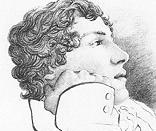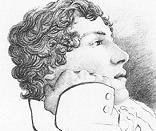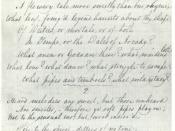Ode To a Grecian Urn
This poem says something insidious about human nature, or at least civilization. But before I get into that, this is what I believe the poet is trying to say, and I only use the term "believe" because there are many different ways of interpreting this poem. The key to it is the last two lines, ""Beauty is truth, truth beauty" -that is all/ Ye need know on earth, and all ye need to know." What Keats is trying to convey is the fragility of human life, and how people shouldn't worry so much because in the end "Old age shall this generation waste". The Grecian Urn will stay forever in that blush of life, where the beginning, the anticipation, the curiosity abounds forever. The possibilities for the characters on the urn are endless, but we are mortal and therefore should take comfort where we can- namely in beauty.
This is a crock. While Keats lauds the girl who cannot fade, and who will always be fair, this leaves real women to try to hold themselves up to a standard that cannot exist beyond the imagination.
While American women attempt with Botox and other unnatural products to fight the signs of very natural aging, the characters on the urn will never age. And the whole idea of beauty, while idyllic is not tangible; you can't eat beauty, and it doesn't usually pay the rent. Beauty should be a mother who wakes up at three o'clock in the morning to feed her newborn, beauty should be the uncle who stays home with the kids so the parents can have a quiet night together. This is a true and inner beauty, one that truly lasts. Instead, beauty is in the unattainable, the youth and agelessness of these fictional...



Thought Provoking but I Disagree!
I've never read an essay like this before in my life but how thought-provoking! I doubt it will be really helpful if you're coming to Keats criticsm for the first time but as I'm really familiar with this poem I found it engaging and enjoyable! However, in saying 'truth is beauty' and beauty truth etc. I think Keats IS ending by making the point that real life, (i.e. truth) is what is beautiful really, because although art may be sustained perfection it can't leave up to what is real. So I'm not ready to lock this poem away just yet, but as for the men after that idea of virginal perfection (particularly when they are so far from purity themselves!) - throw away the key!
2 out of 3 people found this comment useful.